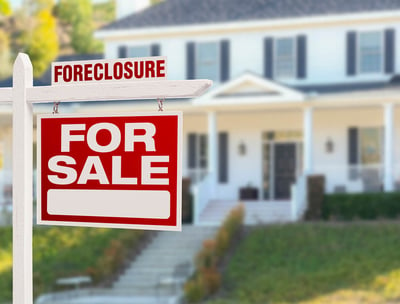Our Services
Expert residential appraisal services with over two decades of experience in dependable property valuation. BN Appraisal Services provide trusted valuation services tailored to your residential real estate needs, ensuring accuracy and reliability in every appraisal we conduct.
Lending - Morgage Financing
We provide residential real estate solutions for the lending community.
Foreclosure & REO Appraisals
If your home's value has increased or you've made enough payments to reach 20% equity, you can request that your lender cancel the PMI. You'll need to provide proof of the increased value, such as an appraisal.
PMI Removal
Estate Planning - Divorce
Property Tax Appeal
Expert Witness
Homeowners
Reliable residential appraisals to support the distribution of assets or the division of marital assets.
Homeowners can benefit from a residential appraisal in several ways.
Our expertise, objectivity and credibility will provide an independent and unbiased opinion of a property's value that can be used to support a tax dispute claim.
We offer a wide range of residential real estate services, including expert witness testimony.
We have the expertise and experience required to produce reliable REO Appraisals

Lending - Mortgage Financing
Our mission is to provide real estate solutions to the lending community in Houston and surrounding communities. Our coverage area includes the following counties:
Harris
Montgomery
Fort Bend
Waller
Austin
Walker
San Jacinto
Liberty
Grimes
Washington
Brazos


PMI Removal




Our certified residential appraisers are FHA approved meaning we possess the knowledge to understand the rules, regulations and procedures governing FHA guidelines.
Let our vast experience of over twenty years, our unparalleled service, quick turn times and expertise help in all your residential appraisal needs.
A residential appraisal for mortgage financing provides lenders with an independent, objective assessment of a property's value, helping them make informed decisions about mortgage loans and manage risk.
We specialize in proposed construction, new construction homes, existing homes, townhomes, condominiums, apartments, luxury homes and multi-family 2-4 units mortgage appraisals. We also provide service for land appraisals.
Private mortgage insurance (PMI) is a type of insurance that lenders require borrowers to purchase when they put down less than 20% of the purchase price of a home as a down payment. The purpose of PMI is to protect the lender in case the borrower defaults on the loan. PMI is usually paid by the borrower as a monthly premium, and it can range from 0.3% to 2% of the original loan amount annually.
To remove PMI; an appraisal is a very effective tool. If a home's value has increased or a borrower have made enough payments to reach 20% equity, it can be requested that the lender cancel the PMI. Then, proof of the increased value needs to be provided, such as an appraisal. Example: if a home is currently worth $250,000 and owner owns $200,000; then, the property is currently below the 80% loan to value ratio and PMI is no longer required.
If the home's value has increased significantly, an appraiser will help to assess the value. The borrower can then request that the PMI be cancel if the new appraisal shows that the borrower has at least 20% equity.
Estate Planning - Divorce
A residential appraisal for estate planning is an independent, objective assessment of a property's value, to support the distribution of assets as part of an individual's or family's estate planning. The primary goal of this appraisal is to provide a reliable estimate of the property's value, which can be used to:
Determine estate tax liability: The appraisal helps to establish the property's value for estate tax purposes, ensuring that the estate's tax liability is accurately calculated.
Allocate assets: The appraisal provides a basis for dividing assets among beneficiaries, such as heirs or charitable organizations, in a fair and equitable manner.
Establish a basis for future transactions: The appraisal sets a benchmark for the property's value, which can be used to determine capital gains or losses in future transactions, such as sales or gifts.
Support gift tax reporting: If the property is being transferred as a gift, the appraisal provides a value for gift tax reporting purposes.
Facilitate trust administration: The appraisal helps to establish the property's value for trust administration purposes, ensuring that the trust's assets are accurately valued and distributed according to the trust's terms.
Estate Planning
A residential appraisal for divorce is an independent, objective assessment of a property's value, to support the division of marital assets as part of a divorce proceeding. The primary goal of this appraisal is to provide a reliable estimate of the property's value, which can be used to:
Determine equitable distribution: The appraisal helps to establish the property's value, ensuring that the marital assets are divided fairly and equitably between the parties.
Support settlement negotiations: The appraisal provides a basis for negotiations between the parties, helping to resolve disputes and reach a mutually acceptable agreement.
Facilitate buyout or sale: The appraisal sets a benchmark for the property's value, which can be used to determine the amount of a buyout or the sale price of the property.
Establish a basis for future transactions: The appraisal provides a value for the property, which can be used to determine capital gains or losses in future transactions, such as sales or refinancing.
Divorce
To be effective in estate planning and divorce, the appraisal report should:
Be performed by a licensed and/or certified, experienced appraiser.
Be based on a thorough inspection of the property.
Consider all relevant factors that affect the property's value.
Provide a clear, well-supported opinion of the property's value.
Be retained as part of the estate's records, in case of future audits or disputes
Be admissible in court, in case the divorce proceeding becomes contested.
Estate planning often involves appraising properties with a retrospective date. This date is referred as the date of death which typically differs from the date the appraisal is requested.
Homeowners
Homeowners can benefit from a residential appraisal in several ways:
Determine accurate property value: An appraisal provides an unbiased opinion of a property's value, helping homeowners understand their home's worth and make informed decisions about buying, selling, or refinancing.
Increase property tax appeal chances: If homeowners believe their property taxes are too high, an appraisal can provide evidence to support a tax appeal, potentially reducing their tax burden.
Support insurance claims: In the event of damage or loss, an appraisal can help homeowners establish the value of their property and support insurance claims.
Inform renovation or construction decisions: An appraisal can help homeowners determine the potential return on investment for renovations or construction projects, ensuring they make informed decisions about how to allocate their resources.
Facilitate estate planning: An appraisal can provide a basis for estate planning, helping homeowners establish the value of their property for inheritance, trusts, or other estate planning purposes.
Enhance refinancing or loan applications: An appraisal can be used to support loan applications or refinancing efforts, potentially helping homeowners qualify for better loan terms or lower interest rates.
Set a basis for future transactions: An appraisal provides a benchmark for the property's value, which can be used to determine capital gains or losses in future transactions, such as sales or gifts.
Provide a negotiating tool: An appraisal can serve as a negotiating tool when buying or selling a property, helping homeowners establish a fair and reasonable price.
Identify potential issues: An appraisal can identify potential issues with the property, such as needed repairs or upgrades, allowing homeowners to address these issues before they become major problems.
Increase confidence in property decisions: By providing an objective, data-driven estimate of a property's value, an appraisal can give homeowners confidence in their decisions, whether they're buying, selling, or simply maintaining their property.
Additionally, homeowners can benefit from a residential appraisal in the following situations:
Disputes with neighbors or contractors: An appraisal can help resolve disputes with neighbors or contractors by providing an objective estimate of the property's value.
Divorce or separation: An appraisal can help establish the value of the property in a divorce or separation, ensuring a fair and equitable division of assets.
Inheritance or probate: An appraisal can help establish the value of a property for inheritance or probate purposes, ensuring that the estate is settled fairly and efficiently.
Property damage or loss: An appraisal can help establish the value of a property after damage or loss, supporting insurance claims and facilitating the recovery process.
Overall, a residential appraisal can provide homeowners with valuable insights and information, helping them make informed decisions about their property and achieve their goals.
Property Tax Appeal
A residential appraisal for property tax appeal is an independent, objective assessment of a property's value, to support a property owner's appeal of their property tax assessment. The primary goal of this appraisal is to provide evidence that the assessed value of the property is excessive or incorrect, and therefore, the property taxes should be reduced.
Counties typically appraise residential properties for tax purposes using a combination of methods and data which include:
Data collection: The county assessor's office collects data on the property, including:
Property characteristics: size, age, location, number of bedrooms and bathrooms, and other features.
Sales data: recent sales of similar properties in the area.
Market trends: changes in the local real estate market.
Mass appraisal method: Counties use a mass appraisal method, which involves valuing a large number of properties using a standardized approach. This method uses statistical models and computer algorithms to estimate property values.




Expert Witness


At BN Appraisal Services, our experts offer a wide range of residential real estate services, including expert witness testimony.
As an expert witness, we can provide specialized knowledge and opinion to assist a court or other tribunal in making informed decisions. Here are some ways our appraisers can perform as expert witness:
Testimony: Provide oral or written testimony in a court of law, deposition, or other proceeding, offering our expert opinion on the value of a property or other relevant issues.
Report preparation: Prepare a detailed report outlining our analysis, methodology, and conclusions regarding the property's value. This report can be used as evidence in a court case.
Inspection and analysis: Inspect the property and analyze relevant data, such as sales comparables, market trends, and property characteristics, to form an opinion on the property's value.
Rebuttal testimony: If another expert witness has provided testimony, our appraisers can provide rebuttal testimony to challenge or contradict the opposing expert's opinions.
Consultation: Consult with attorneys, judges, or other parties to provide guidance on valuation issues and help them understand complex appraisal concepts.
Expert opinion: Provide an expert opinion on the value of a property, which can be used to support or challenge a party's claim.
Damages calculation: In cases involving property damage or loss, the appraiser can calculate the damages or loss in value, providing a basis for a claim or settlement.
BN Appraisal Services expertise, objectivity and credibility will provide an independent and unbiased opinion of a property's value that can be used to support a tax dispute claim.
Foreclosure & REO Appraisals


An REO appraisal is a type of real estate appraisal that is specifically designed for properties that are owned by a lender, typically after a foreclosure or other default. REO stands for "Real Estate Owned," which refers to properties that are held in a lender's inventory.
An REO appraisal is usually conducted to determine the current market value of the property, which can help the lender to determine a reasonable listing price or to make informed decisions about the property's disposition.
REO appraisals are often used by lenders to:
Determine the market value of a property after foreclosure
Set a realistic listing price for the property
Identify any necessary repairs or renovations to increase the property's value
Evaluate the property's condition and potential for resale
Support decision-making regarding the property's future, such as whether to sell, rent, or hold the property.
Residential properties in foreclosure and that have reverted ownership to the lending institutions present larger appraisal challenges. REO appraisals are typically more detailed than standard appraisals, as they require us to consider the property's condition, any necessary repairs, and the current market conditions. The appraisal report will usually include information such as:
An inspection of the property's condition
An analysis of the local real estate market
A comparison of the subject property to similar properties in the area
An estimate of the property's "as is" market value
Recommendations for any necessary repairs or renovations.
Most REO appraisals require at least three types of value: market value "as is", market value "as repaired" and "quick disposition" value.
An "as is" market value refers to the estimated value of a property in its current condition, without any repairs, renovations, or improvements. It is the price that a buyer would be willing to pay for the property, considering its existing condition, location, and other relevant factors.
An "as repaired" market value refers to the estimated value of a property after hypothetical repairs, renovations, or improvements have been made to restore it to a functional, safe, and marketable condition. This value assumes that all necessary repairs and improvements have been completed, and the property is now in a condition that is typical for similar properties in the same area.
Quick Disposition Value (QDV), on the other hand, is an estimate of the price at which a property can be sold quickly, often within a short period, such as 30-60 days. QDV takes into account the need for a rapid sale, which may require concessions, such as:
A lower sale price
Flexible terms
Limited marketing and advertising
A willingness to accept lower offers
QDV is often used by lenders, investors, or other parties who need to liquidate a property quickly, such as in the case of an REO property. The QDV appraisal considers factors such as:
The property's condition and any necessary repairs
The current market conditions and competition
The urgency of the sale
The potential for price negotiations and concessions


Valuation Expertise
With over two decades of experience, we provide trusted valuation services tailored to your residential real estate needs, ensuring accuracy and reliability in every appraisal we conduct.


Trusted Solutions
Our commitment to excellence and qualifications make us the leading choice for residential real estate appraisals, delivering dependable results that meet your specific requirements and expectations.
Providing accurate and timely residential property appraisals to meet your real estate needs effectively.
Expertise. Integrity. Trust
Reliable residential real estate appraisal services provider.
orders@bnappraisal.com
832-910-9822
© 2025. All rights reserved.
















